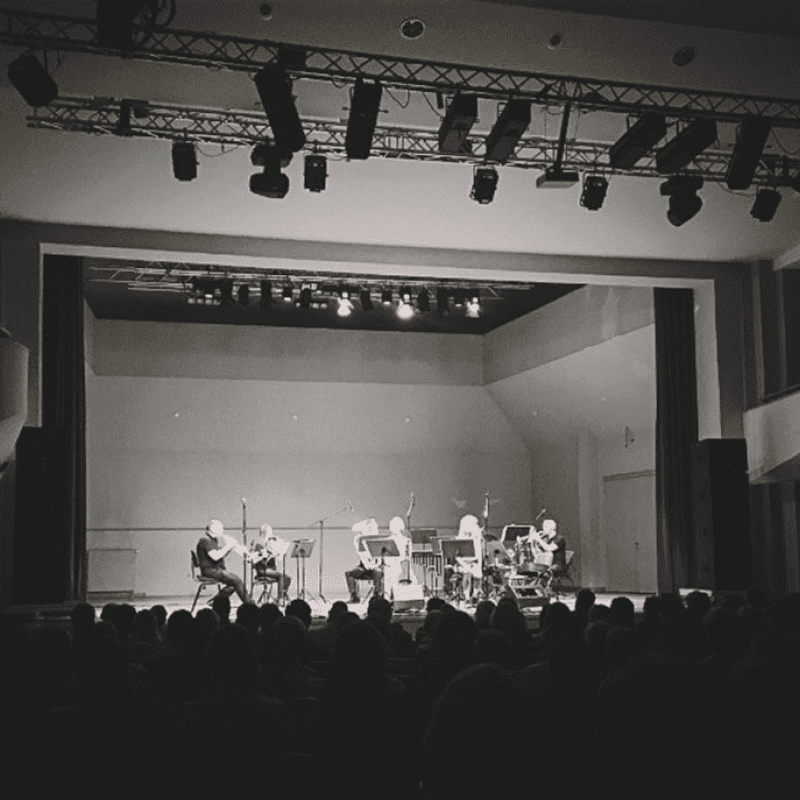
MATAS DRUKTEINIS, COMPOSER


MATAS DRUKTEINIS, COMPOSER
When I decided to study music composition at the Lithuanian Academy of Music and Theater, I felt that the professors of our pilot Film Scoring course were a little oppressive. There were three of us students, all from non-musical backgrounds, which made us less worthy in their eyes. However, I felt motivated to work twice as hard, as I wanted to prove otherwise.
In 2015 I had to present my final bachelor’s thesis. Traditionally it’s a composition for string orchestra. For many years, students’ final theses have been carried out by St. Christopher Chamber Orchestra, conducted by Donatas Katkus. We were very excited because those names were important to us students. We all knew that Katkus has a peculiar sense of humor and can be bitterly ironic, so participating in the rehearsals wasn’t easy.
As was to be expected, our student compositions were mocked both overtly and indirectly. Perhaps it’s worth reminding young composers that they still have plenty to learn, but in the art world the line between criticism and bullying is often very thin. During the rehearsals, I was constantly wondering if everything was okay with my piece. Apart from a few technical notes, I didn’t hear anything bad.
My thesis was called Superstrings. I worked on it for about four months. When you entrust your composition to such an extraordinary orchestra and a prominent conductor, the sound of the music is as important as the consistency of the notes. Everything must be in order, because the language of music has strict rules.
At that time, I was more willing to take risks and experiment with my music. My piece was neatly written, but it involved a playing technique that went somewhat against the conventional system of how stringed instruments are played. For instance, when playing two strings on a violin, the performer’s fingers naturally come closer to each other as they move down the string – this becomes a habit. However, in my piece, the fingers had to remain still. This posed a challenge for the musicians. Despite my worries, I believed in my idea and tried to prove to myself and the world that I could create a powerful piece of music.
My composition was performed during the Druskomania Festival, in the church of Druskininkai town, together with other graduate works. I remember how my piece came to an end, the entire evening program was wrapping up, people were starting to disperse, and Donatas Katkus said to me: “Some great pieces were played today, but you won’t be a composer for sure, your piece was really bad.” You never know when Katkus is speaking seriously and when ironically, but his words carried a sense of certainty.
I felt as if a thousand landmines had exploded in my heart, before it being run over by a tank and then kicked to death. It was a tragedy. At that time, due to all the rehearsals, graduation and general tension at the academy, I was so tired that it affected both my health and my psychological state. As a young composer, I was already self-critical, I doubted myself and my work, but when an expert tells you that you are no good, it hurts twice as much. Today, as I continue to write music, I believe that Katkus’ judgment was incorrect, and I would respond in a completely different way if I were to receive a similar verdict now.
Matas Drukteinis was hoping to become a politician, but turned out to be a composer instead. When he is not writing music, he makes TV shows about culture, organizes the Music in Space festival, is engaged in cultural management and actively participates in Facebook discussions about culture and its impact.
Interview by Juta Liutkevičiūtė
Translation by Emilija Ferdmanaitė